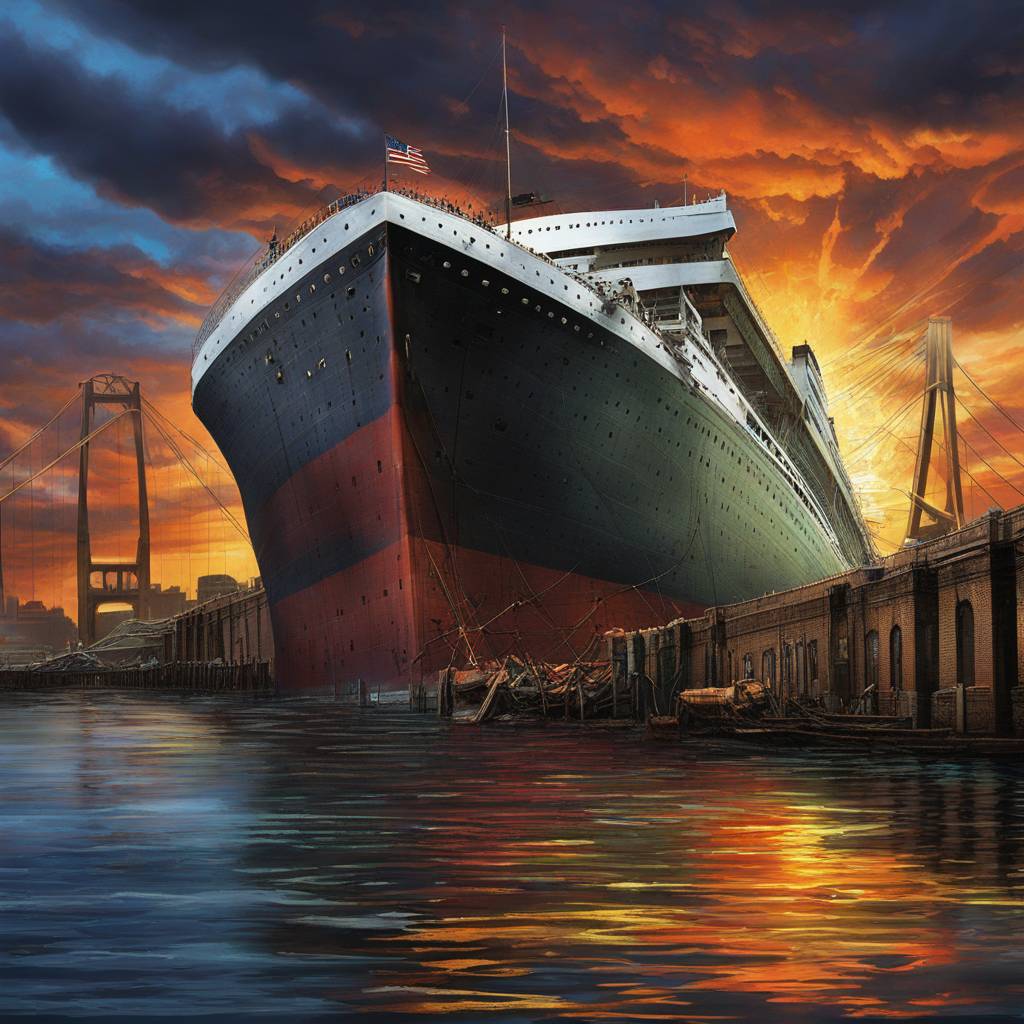The recent cargo ship crash that destroyed Baltimore’s Francis Scott Key Bridge is expected to cost shipping companies and insurers billions of dollars in damages. The resolution of who will be responsible for these costs will depend on maritime law, an ancient legal field that dates back to the Phoenicians and Greeks. Maritime law was developed over centuries to settle disputes and enforce rules between different peoples, even before the concept of definitive countries with laws existed.
One of the key principles in maritime law is general average, which dates back to ancient Rhodes around 1000 BCE. This principle states that if some cargo must be thrown overboard to save the ship, the losses are borne by everyone who had cargo onboard, equally. This principle is still a guiding force in maritime law today and could play a role in the cost distribution for the Baltimore incident. Additionally, the Limitation of Liability Act of 1851 may also be invoked, allowing shipowners to limit their financial liability to the value of their vessel plus cargo.
Another legal precedent that may come into play in the aftermath of the Baltimore crash is the Robins Dry Dock v. Flint case from 1927. This case established that pure economic losses were not recoverable from ship owners and operators in the absence of physical injury or a relevant contract clause. This decision may impact companies seeking compensation for lost business from the bridge collapse. Despite the ancient origins of maritime law, it is still a fundamental aspect of the shipping industry and has been incorporated into modern legal frameworks.
The Titanic Law, derived from the Limitation of Liability Act of 1851, allowed the owners of the Titanic to limit their liabilities in the aftermath of the ship’s sinking in 1912. This law has been utilized by many other shipowners in various cases over the years to limit their financial liability in the face of disasters. Maritime law, though rooted in ancient history, is a well-established and clear legal framework that is utilized in cases of maritime disasters to determine responsibility and compensation. It may seem archaic, but maritime lawyers are accustomed to its application in modern cases.
Overall, the recent cargo ship crash in Baltimore has brought maritime law to the forefront in determining the legal implications and responsibilities for the damages caused by the bridge collapse. With ancient principles such as general average and modern laws like the Limitation of Liability Act coming into play, lawyers, legislators, and business owners will need to navigate this complex legal field to determine who owes what. Maritime law, though steeped in antiquity, remains a critical component of the global shipping industry and will guide the resolution of the aftermath of the Baltimore incident.













